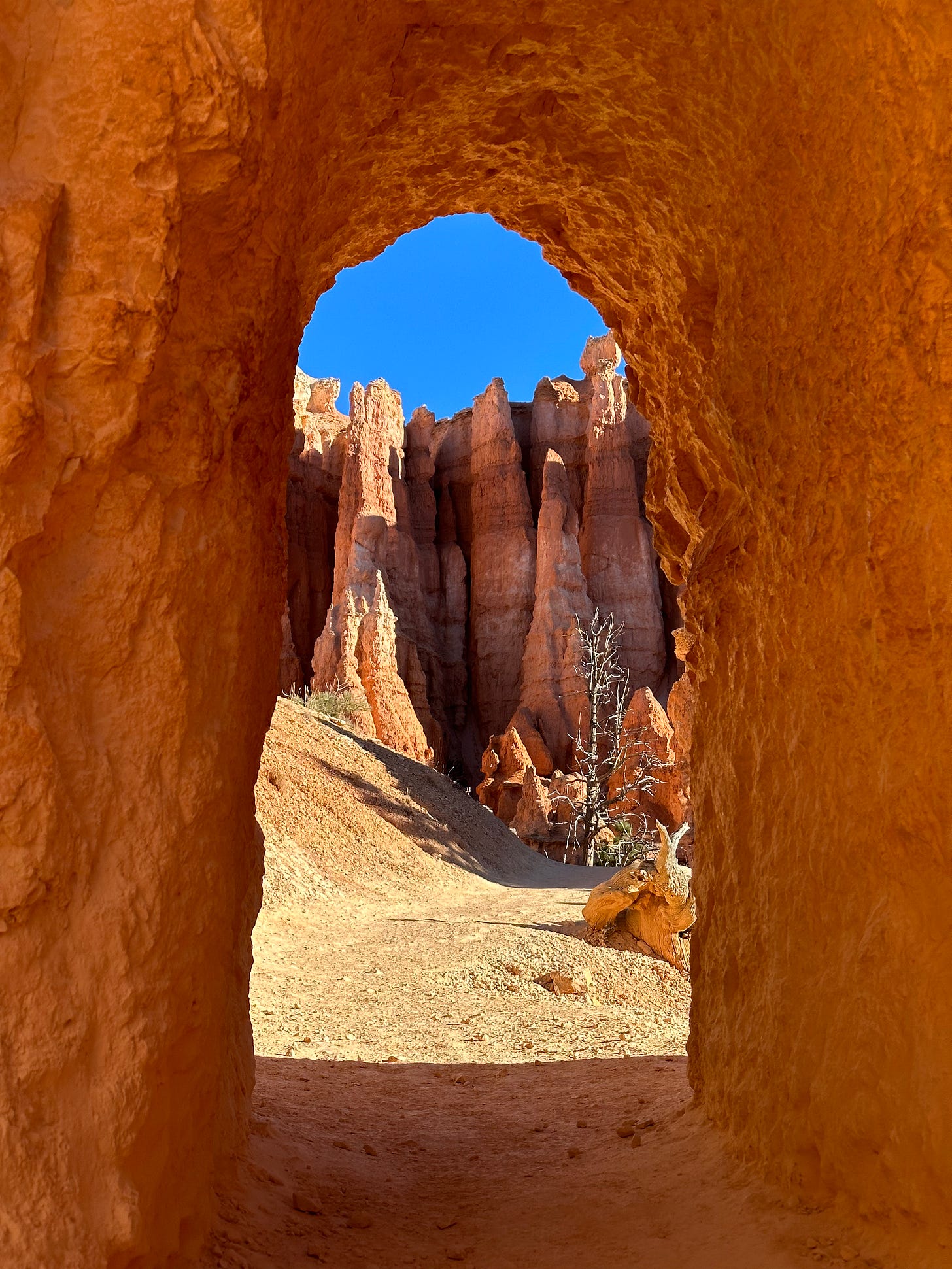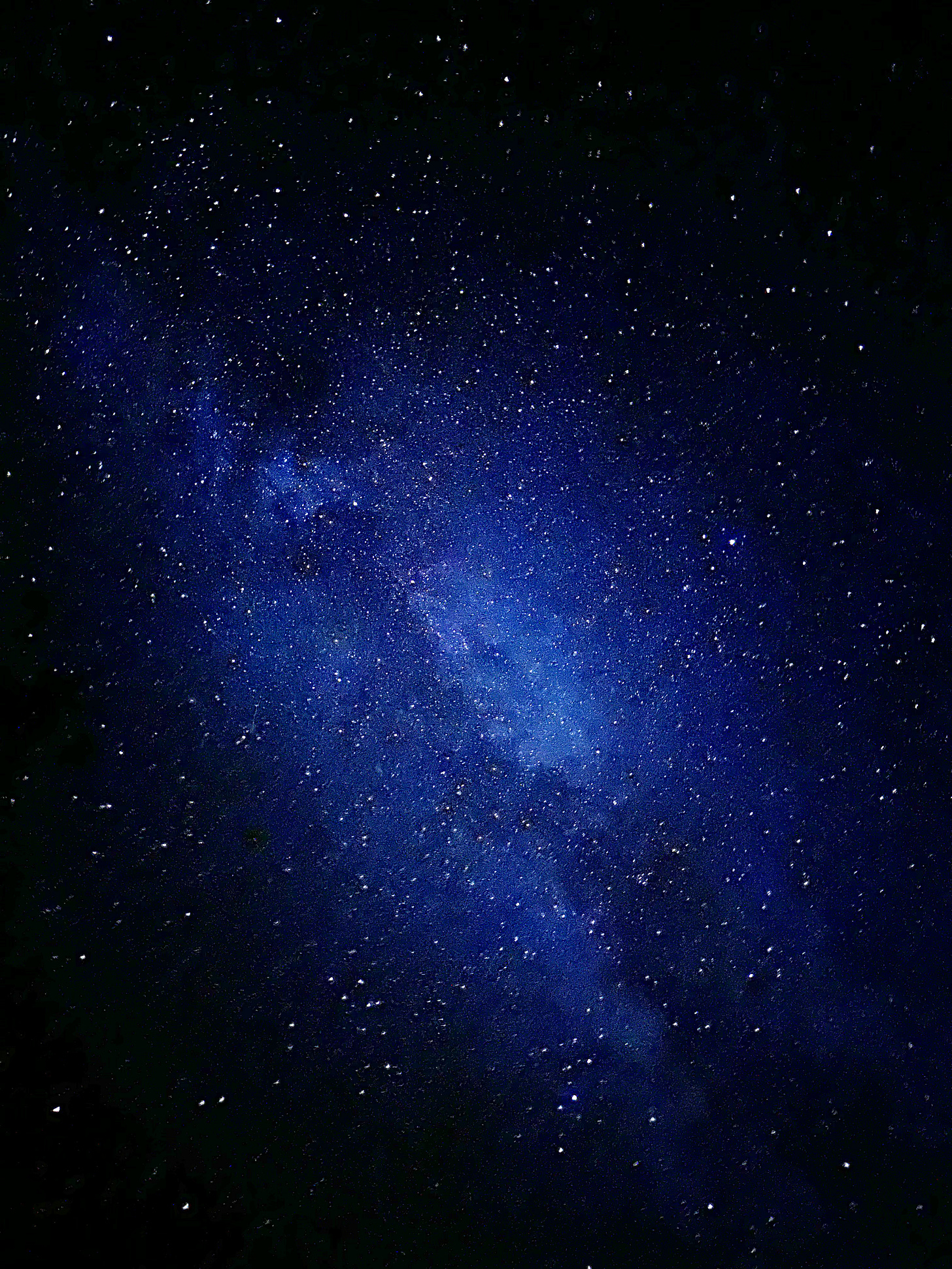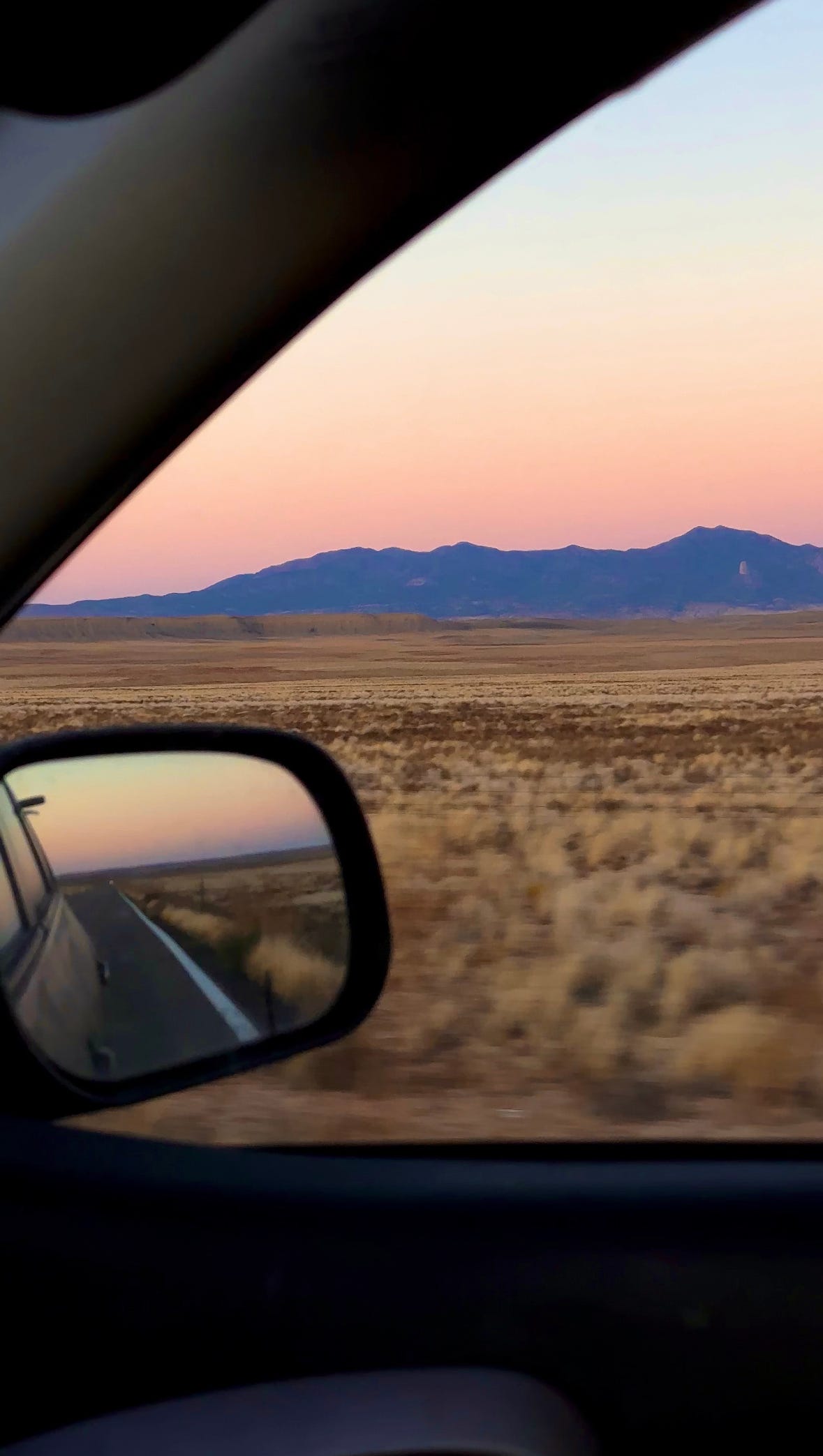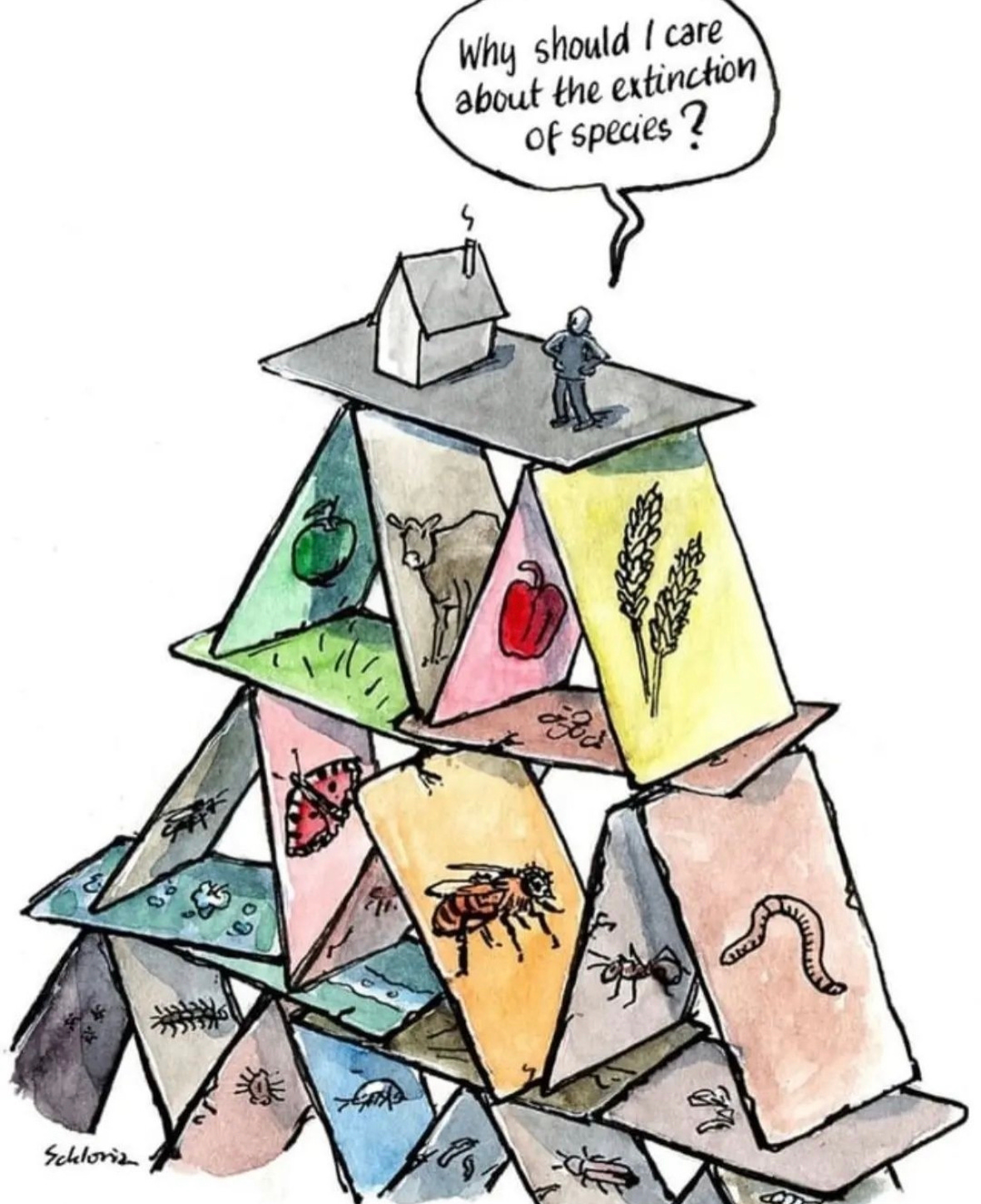*NOTE: This essay is a walk, not a hike. There isn’t a pretty view at the end, and I can’t promise you’ll finish with any sense of accomplishment or gratitude for doing so. But please, join me anyway.
Listen to the audio version here.
At the beginning of October, I set off on a solo road trip, although I’m not sure you can call it a road trip when you live out of your car full-time. Perhaps I’m just moving camp.
I’ve been slowly making my way back down to an area of the U.S. that I fell in love with in 2018: the red rock desert of Utah & Arizona. If you’ve ever journeyed through those lands, you know how magnetic & mystifying they are.
Looking back on that trip, I will always remember it as the place of happening for what felt like a very important ‘awakening’ of sorts. And I use that word with air quotes now, after listening to the work of Stephen Jenkinson, author and self-proclaimed angel of death. In one interview, he deconstructed the word ‘awake’ to its roots of ‘a’ meaning ‘from where’ or maybe ‘in what fashion.’ The second part, ‘wake’ is what we use to define both the celebration at the end of a person’s life, as well as the ripples that flow from behind something as it moves through water.
From that perspective, Stephen says the word ‘awake’ is not the opposite of ‘asleep,’ but rather a profound description of a person who ‘is inhabited by, and claimed by a certain alertness to the realm of consequence that insinuates from everything they did, and everything they didn’t do, and everything they said, and everything they failed to say, and every thought they thought, and every one that escaped them, and so on, and so on.’ (Listen here)
My recent obsession with Stephen’s work has positioned me perfectly for this obsession with etymology, the study of words. It’s fascinating how many words we use incorrectly based on their original meaning, as well as how many words carry meaning far beyond that which we attribute to them today.
Now rewinding to the first night of this trip, I was sitting under the stars somewhere along a river and having a voice memo exchange with one of my dear friends who is currently studying at an Islamic school on the East Coast. She’s in an Arabic intensive program there and was excitedly telling me about the connection between some of the words she’s been learning.
She told me that the Arabic word for travel is يسافر or yusafir, which, if you say it out loud with a terrible Arabic accent, sounds vaguely like ‘you suffer’ in English. The other word she mentioned in connection with the word for travel is akash, which refers to an unveiling.
Goosebumps blossomed along my arms when I listened to her explain all of this, because it felt intensely connected to everything I’ve ever experienced while traveling. To me, traveling, and especially traveling solo, is so deeply tied to both suffering and unveiling.
‘Out there,’ you get acutely acquainted with hardship in the form of loneliness, fear, and disappointment, and it is through close encounters with those things that who you are and where you’re at is revealed to you, whether you asked for it or not. Pure clarity.
Wandering around as a nomad this past year has brought up some intense emotions, in the form of questions, surrounding the issue of purpose. If there is anything that can make you question your purpose, it is the act of leaving behind everything you know.
There’s something about being alone in the desert that makes you look at yourself in the mirror and go ‘Now what the hell am I doing out here, while all the people and things that bring meaning to my life are way back there??’
But if you’re on a similar journey as me, you know that the impulse to embark is not necessarily one in which peace and happiness and comfort are the final destination. Rather, I feel as though I am often setting out with my sights set only on an inevitable collision with things not yet known. For better or worse.
So then, the question of purpose. I think at some point or another, with varying degrees of regularity, all of us face the question of our own purpose. Why am I here? What am I supposed to be doing with my life? Do I even have a purpose, or am I just here to exist? What is the point of existing if we don’t have a purpose?
Somewhere between Winthrop and Boise, I was re-listening to a Stephen Jenkinson interview I’ve heard at least 10 times now, and one whose message I can’t seem to shake. Here’s the part that stuck out to me this time around.
10:23 of Season 4 Ep 1 of The Mystic Cave podcast
“[Humans] are the least needed, the most needy, and somehow the lesson we’ve drawn from that is that we’re the apex predator. That’s some weird geometry.”
So, if all life on the planet would survive just fine without us— and arguably even better— what then is the purpose of the human species? I mean really? You’re telling me that on an entire planet in which every single organism has its own absolutely vital role in keeping the whole thing going, we humans are the only species that is not only inconsequential to the perpetuation of life, but are actually detrimental to it? Now, that’s a lot to hold.
And as that thought crossed my mind, it began to make a lot of sense to me, why so many humans grapple with their own purpose. With that fact looming above our heads, how could we not? How could we ever be confident in our individual purpose when we can’t seem to identify and/or agree on our collective purpose?
Although I’m not someone that feels particularly inclined towards religion, I’ve begun to understand the appeal. I’d love to feel that kind of confidence in the importance of what I’m doing here. A good chunk of it makes sense to me, but I can’t say you’ll ever sell me the whole package. And what’s the point of halfway subscribing to something that demands full membership?
Acceptance, though, I think I could get behind that. To accept that I will never arrive at one conclusion, at least not for very long. That I may always long to understand my purpose, even as I’m right up beside it, because it will never be fully and completely grasped. That a life spent living as close to what you could call one’s purpose is a life spent well. To accept and admit and lean into the fact that the not knowing is a fundamental part of the human experience, perhaps the thing that was meant to separate us from the Creator, or maybe the thing that brings us closer to it?
And if we’re not as needed here as we often believe ourselves to be, maybe we ought to tread a little lighter. To see ourselves as not as the party host but as humble guests with an obligation to help out where we can. And to remember that, contrary to the current status quo, obligations are not a burden, but rather a blessing.
I think I’d like to end with this, one more bit of etymology:
Obligation: same Latin roots as religion and ligament. To be bound to something that is both other than yourself and wholly yourself. Fibrous connective tissue, AKA many strings, woven together to be made stronger. The things that hold us together.
Blessing: an Old English word derived from the Germanic noun for blood. Because anyone who’s been on the receiving end of blessings knows that the price is the end of something else. A death, a release, some sort of sacrifice. Something of value must be given up in order for something better to come forth.
So now that I’m really thinking about it, and although at first glance they appear to be complete opposites, maybe the answer to our question of purpose overlaps quite a bit more with our obligations than we would otherwise have thought. In fact, I’d go as far as to say that the above translation of the word ‘obligation’ seems a lot closer to the definition of purpose than I’ve ever heard.
Now maybe we’re getting somewhere.










Great read Halley! I love your perspective.